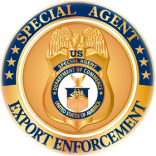
FOR IMMEDIATE RELEASE |
Bis Updates Freight Forwarder Guidance And Best Practices
WASHINGTON, D.C. – Today, the Department of Commerce’s Bureau of Industry and Security (BIS) published a document containing updated guidance and best practices for freight forwarders and exporters who use freight forwarders to help them ensure compliance with U.S. export controls and regulatory requirements.
“The freight forwarding community serves as a linchpin in the global supply chain, ensuring that the right goods get to the right place,” said Assistant Secretary for Export Enforcement Matthew S. Axelrod. “This guidance emphasizes the importance of a risk-based compliance program to ensure that freight forwarders and exporters prevent sensitive items from going to the wrong place, including into the hands of terrorists and other malign actors.”
The freight forwarding community has a key role and obligation in securing the global supply chain and stemming the flow of illegal exports. Fulfilling this role helps to prevent activities contrary to U.S. national security and foreign policy interests, including the proliferation of weapons of mass destruction, destabilizing military activities, and the enabling of human rights abuses. The guidance and best practices document contains discussions on: freight forwarder roles and responsibilities; responsibilities with respect to routed and non-routed exports; expectations of the exporter or U.S. principal party in interest (USPPI); considerations in selecting a freight forwarder; how the antiboycott regulations apply to freight forwarders; and red flags specific to freight forwarders and USPPIs.
The full guidance can be found here.
Authorities and Export Enforcement Contact
BIS controls exports, reexports, and in-country transfers of dual-use commodities, technology, and software for reasons of national security, missile technology, nuclear non-proliferation, chemical and biological non-proliferation, crime control, and regional stability. Criminal and administrative sanctions can be imposed for violations of the Export Administration Regulations (EAR). For more information, please visit: https://www.bis.gov/enforcement.
Report suspected export control violations through the BIS online tip portal. You can also call the Enforcement Hotline at 1-800-424-2980 or email [email protected].

